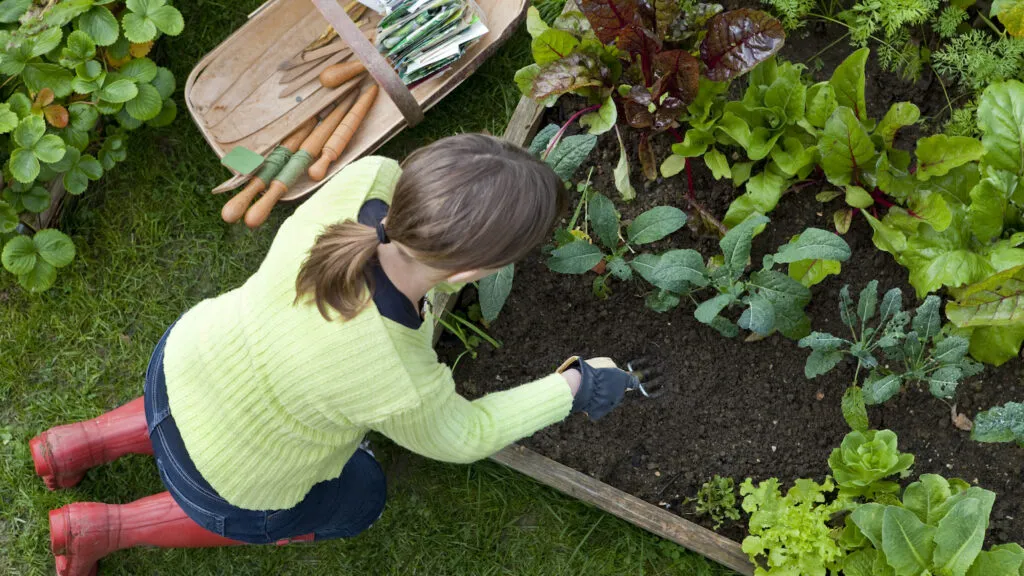Excellent advice abounds for how to clear clutter from your bedroom, office, attic and basement. But what about clutter that can take over the garden? As May planting season begins in earnest, turn your attention toward what can help your garden grow.
1) Define “Weeds” for Yourself
In the Book of Genesis, God tells Adam and Eve that because they ate from the forbidden Tree of Knowledge, the ground will be “cursed” for them. Verse 3:18 says the land “will produce thorns and thistles for you,” though sometimes “thistles” is translated instead as “weeds.” I have always defined weeds, simply, as “unwanted plants.” Some, like clover, have positive properties like fixing nutrients in the soil. Others, like dandelion greens, are edible. So one gardener’s weed might be another gardener’s dinner! Decide what you truly value, and pull out the rest, without hesitation.
2) Embrace the Weeding Process
Weeds, especially invasive ones, can crowd out your intentional plantings and make for garden clutter. Weed removal is a never-ending process, so try to embrace the activity in a positive way. I vacillate between casually plucking weeds as I spot them walking by my garden beds, and setting aside time to don my gloves and go all-in on weed removal. Whatever attention you are able to give your weeds is enough, even though you’ll never feel quite “finished”—remind yourself that every weed pulled is progress.
3) Make a Clear Garden Plan
After months of drooling over lush, colorful garden catalogs, I often hit the nursery in May bursting with inspiration and adventure. “This year,” I say, “I’m going to try…everything!” But time has taught me that this wild ambition can work against me—if I choose too many plants to experiment with, my plantings will crowd each other out and not thrive. Try making a map of your garden before you head to the garden center, using the recommended spacing to guide your design.
4) Reassess Your Garden Tool Collection
Just like indoor clutter, garden clutter can result from having too much “stuff.” Pitchforks, spades, clippers, gloves—all tools that every gardener needs, but they can build up and collect dust, or dirt as the case may be. Early in the planting season, go through your stash and decide which tools need sharpening, which gloves need donating, which just don’t work for you and which are your forever garden companions.
5) Go a Little Wild
Gardening can feel like a battle of human beings against nature, especially as the summer sun gives plants the all-clear to take off. I have one small bed where I toss flower seeds in the spring, and then don’t really focus on it again until I have a wild pile of growing things. As hard as I might work to keep my other beds clear and free of clutter, it is a freeing, pleasant feeling to step back and marvel at how nature always finds a way to flower.







